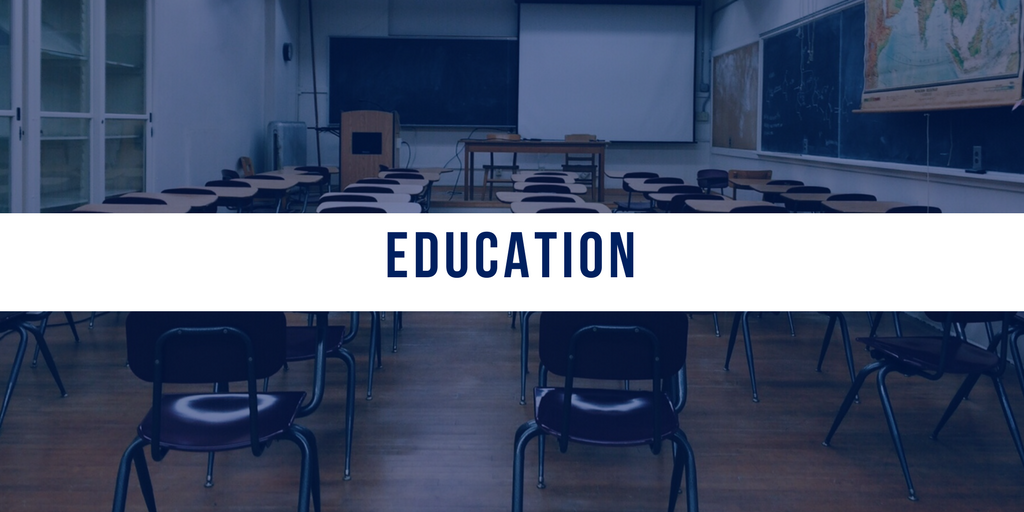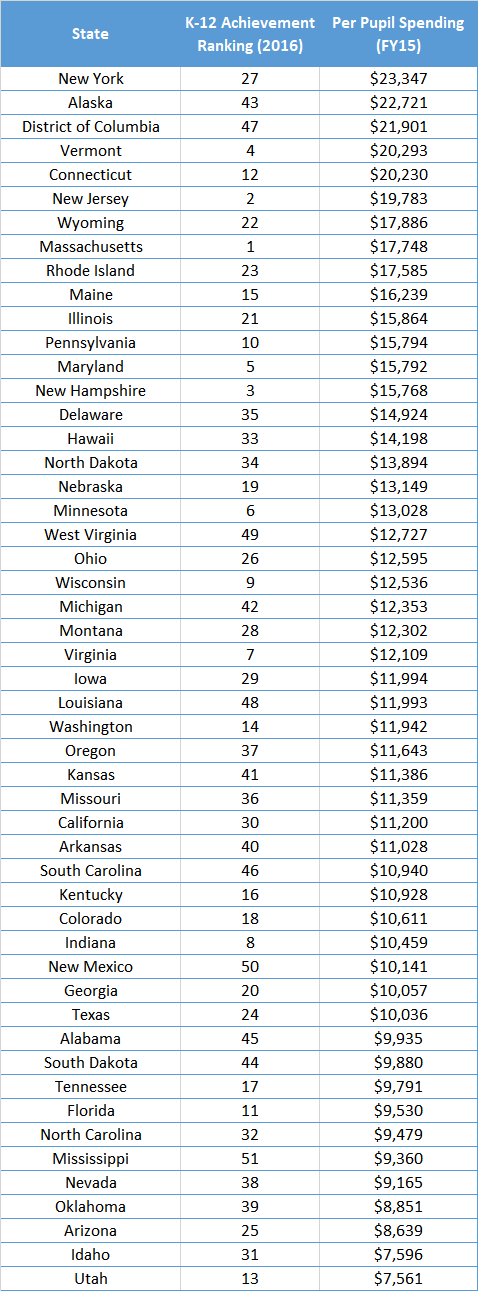
Nevada has nearly tripled its K-12 spending since 1960
From 1960 to 2015, Nevada nearly tripled the amount spent on K-12 education, as inflation-adjusted, per pupil expenditures rose from $3,556 to $9,165, according to federal data from the National Center for Education Statistics (NCES).
And since then, spending has continued to increase, with the state’s FY2018 education budget exceeding $2.34 billion — a $200 million increase from 2015’s level.
Yet the education establishment, which has so badly failed Nevada students for decades, characterizes this increase as woefully inadequate, and has already begun pushing for further spending hikes.
After the latest version of Education Week’s Quality Counts report ranked Nevada dead-last in the nation, many in the education establishment seized on this as “proof” that education spending is inadequate.
To test the theory, it’s worth digging into the report a bit further. The report is broken down into 3 sub-categories of rankings: Chance-For-Success, School Finance, and K-12 Achievement.
While the Chance-For-Success provides worthwhile data about family income levels, parent employment levels and other cultural and social metrics which are thought to indicate whether a child is likely to “succeed,” these factors are unrelated to the more pressing issue of how much spending is considered “appropriate” for a public education system.
To find that information, we must look to the K-12 Achievement ranking, which “scores states based on 18 distinct achievement measures related to reading and math performance, high school graduation rates, and the results of Advanced Placement exams.”
The School Finance category is unrelated to student performance and, instead, reflects Education Week’s assessment of “both school spending and measures of financial equity, which capture the distribution of funding across districts within a state”.
Thus, if we wished to test the claim that more funding translates to higher student achievement, the K-12 Achievement ranking is the only appropriate metric to use.
The below chart compares the 50 states’ per-pupil funding levels against their K-12 Achievement Ranking from the latest Quality Counts report:

As the chart makes clear, there is virtually no correlation between education spending and student performance. Some states that spend vastly more than Nevada — like Alaska, Washington D.C., and West Virginia — rank significantly worse. By contrast, states that spend less than Nevada — like Arizona, Idaho and Utah — all rank significantly higher.
Of course, this is hardly new information. On a national basis, the overall performance of K-12 schools has remained flat since 1970, despite a nearly 200 percent increase in inflation-adjusted per pupil spending over that same time period.
While this dispels the notion that Nevada’s educational woes are the result of insufficient funding, this isn’t to say that funding is meaningless.
Obviously, we would expect there to be some chance of improvement if we had the ability to magically double Nevada’s — or any state’s — funding.
But, of course, taxpayer dollars are not limitless. So the real question is: how can we most effectively use our scarce resources to provide all Nevadans with the highest quality education possible? After all, as is evidenced by the above chart, there are certainly ways to achieve higher achievement, regardless of how much a state spends per pupil.
Rather than blindly throwing more money at a demonstrably failing institution, Nevada needs to fix how our money is being spent.
By design, government schools are inflexibly rigid, lack meaningful accountability, are beholden to special interests which siphon funds out of the classroom, lack innovation and employ a methodology which seeks to cater to the “average” student — an approach which modern science has revealed is fundamentally and irredeemably flawed.
Add to that the string of CCSD’s never-ending scandals, such as the “pass the trash” phenomenon where teachers accused of sexual misconduct are kept in the classroom, millions of dollars wasted on consultants and projects in what could be described as criminal negligence and the systemic mistreatment of special-ed students, just to name a few.
So, is it any wonder Nevadans are reluctant to reward this system with even more funding?
Rather than relying on a one-size-fits-all government monopoly, Nevada should follow the lead of states like Arizona and Florida, which have had tremendous success by unleashing the power of parental involvement through their educational choice programs.
While relatively new, there is already a robust library of academic literature that validates the common-sense notion that empowering parents to choose the best educational program for their child improves student learning.
After decades of failure, despite dramatic increases in public school funding, Nevadans deserve the opportunity to pursue meaningful education reform. If lawmakers are serious about improving education, they should immediately fund Nevada’s Education Savings Accounts, expand the state’s Opportunity Tax Scholarships and pursue reforms that put parents — not bureaucrats and politicians — in charge of how educational dollars are actually spent.